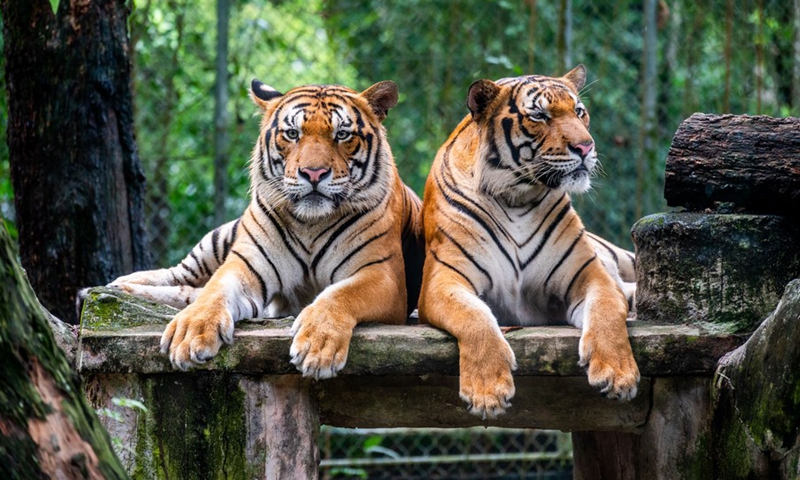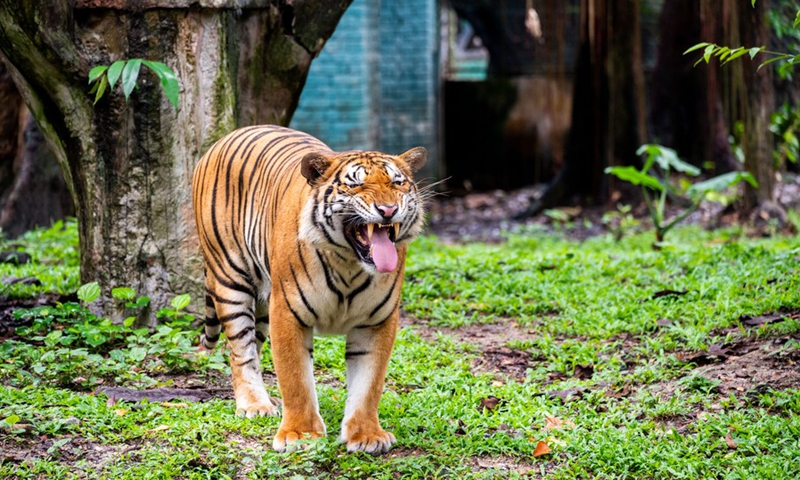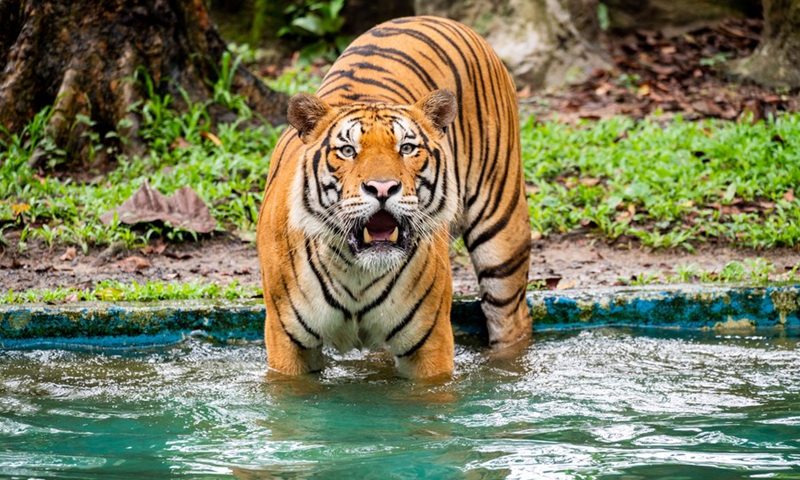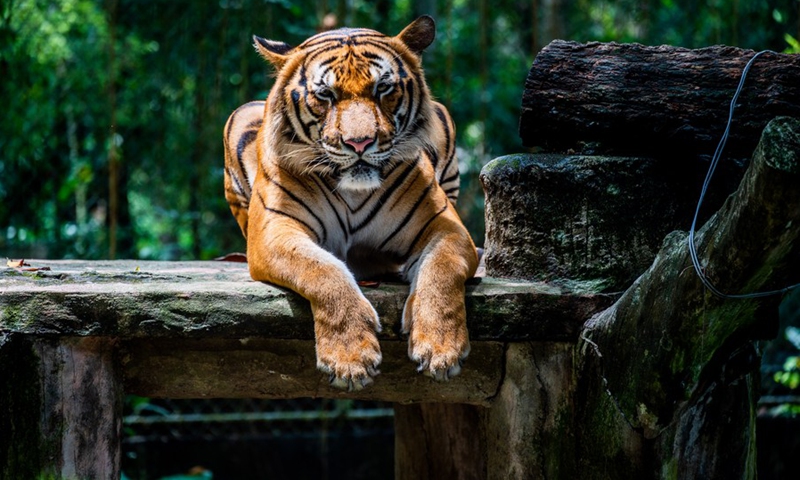
Malayan tigers Wira (L) and Hebat rest in their enclosure at Zoo Negara near Kuala Lumpur, Malaysia, on Feb. 27, 2022.(Photo: Xinhua)

Wira, a Malayan tiger, reacts at Zoo Negara near Kuala Lumpur, Malaysia, on Feb. 27, 2022.(Photo: Xinhua)

Wira, a Malayan tiger, walks around in its enclosure at Zoo Negara near Kuala Lumpur, Malaysia, on Feb. 27, 2022(Photo: Xinhua)

Hebat, a Malayan tiger, rests in its enclosure at Zoo Negara near Kuala Lumpur, Malaysia, on Feb. 27, 2022.(Photo: Xinhua)
From their enclosure at Zoo Negara near Kuala Lumpur, the sharp, attentive eyes of two Malayan tigers watch the visitors watching them.
Wira (Hero) and Hebat (Great) are the stars among the eight Malayan tigers at the zoo. These fierce, wild animals were born in the zoo and will almost certainly live out all their days in the manmade enclosure as their natural habitat shrinks around them.
Zookeepers Mohd Effendi Radzuan and Safuan Sulaiman have taken care of Wira and Hebat since the brothers were born three years ago.
"At first I was afraid because they are tigers after all. Fierce tigers. But after working with them, they are not so fierce. If we are OK with them, they are also OK with us," Effendi told Xinhua. "We don't agitate them or startle them. If we are gentle with them, they are gentle with us."
Safuan takes great pride in his job. He is acutely aware that the animals, national symbols featured on the country's coat of arms, face a gloomy future. "Tigers are challenging. It's an adventure," he said. "I feel hurt to know they will soon be extinct. Our national symbol, our national pride is facing oblivion."
Once widespread in Southern Thailand, Malaysia and Singapore, deforestation and poaching mean the Malayan tiger is critically endangered with fewer than 150 remaining in the wild.
Ecotourism and Conservation Society Malaysia President Andrew Sebastian told Xinhua that serious conservation efforts must be stepped up if the tiger is to have any chance of survival. Federal and state governments need new strategies and must recognize the value of preserving the country's ecosystem.
"The tiger has unfortunately become the symbol of how poorly we have managed ourselves in terms of protecting our ecosystem and we need to take action to reverse the trend. It is not too late for the Malayan tiger," he said, adding habitat loss is the biggest threat to the big cats, needs to be reversed.
"For state governments, they have to stop or phase out logging, especially in virgin forests and work with the federal government to get compensation for keeping their forests intact and one avenue is to invest into eco-tourism, sustainable travel and better agricultural practices," he said.
Prime Minister Ismail Sabri Yaakob said in January at the first meeting of the national tiger conservation task force that the government is serious about the issue. The meeting approved a 10-year plan that brings together the wildlife department, police, the armed forces and the indigenous community.
Shariffa Sabrina Syed Akil, president of the Association for the Protection of the Natural Heritage of Malaysia, believes federal authorities need to take control of the forests.
"The way things are going, Malayan tigers will end up the same way our Sumatran rhino did," she said.
"There has to be the political will to ensure the protection of our forests. We believe that this will never happen unless the management of forest is moved from state to federal control," Shariffa said.
"The Malayan tiger is our national animal. It is on our coat of arms, our national football team, our national car. The tiger is in our hearts and minds and we must find the courage to do everything we can to fight for their survival, so that future generations will be able to see them in real life, not just in pictures," she said.
